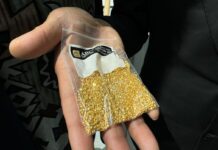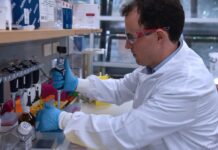
The Centenary Institute has received funding from the RT Hall Trust to propel two pioneering cancer research projects.
With nearly one in two Australians facing a cancer diagnosis by the age of 85, and around 50,000 lives claimed annually, the initiatives aim to address some of the nation’s most pressing healthcare challenges.
Dr Dannel Yeo, laboratory head at the Centenary Institute’s Centre for Cancer Innovations, leads the projects, which focus on leveraging advanced technologies to enhance the treatment and monitoring of rare and deadly cancers.
The first project seeks to refine CAR-T cell therapy—an immunotherapy that modifies T cells to destroy cancer cells.
Specifically, the research will focus on improving the safety and efficacy of CAR-T cell therapy in treating pancreatic cancer.
By studying the molecular dynamics between CAR-T cells, cancer cells, and the tumour microenvironment, the team aims to optimise this promising treatment.
The second project will advance liquid biopsy research, a non-invasive blood test used to monitor cancer.
This initiative seeks to develop a sophisticated method for detecting and analysing rare ‘circulating tumour cells’ in cancer patients’ blood.
The technology holds potential to improve early detection, predict disease progression, and identify relapses. The study will cover cancers such as pancreatic, appendiceal, colorectal, mesothelioma, and small cell lung cancers.
Dr Yeo expressed his gratitude for the RT Hall Trust’s support.
“This funding presents a remarkable chance for us to drive innovation and translation in cancer treatment and diagnostics, ultimately leading to improved patient outcomes,” he said.
Each project will receive $150,000 in funding, enabling the researchers to push the boundaries of current cancer treatments and diagnostics.




















